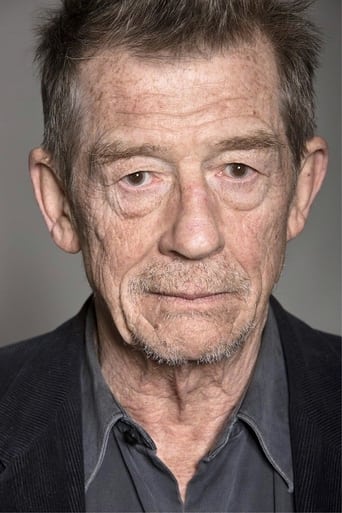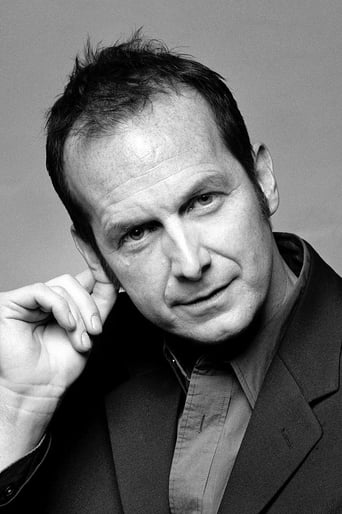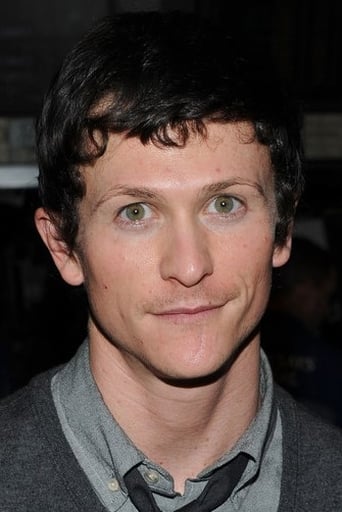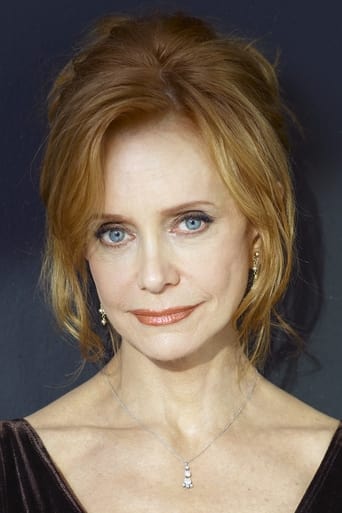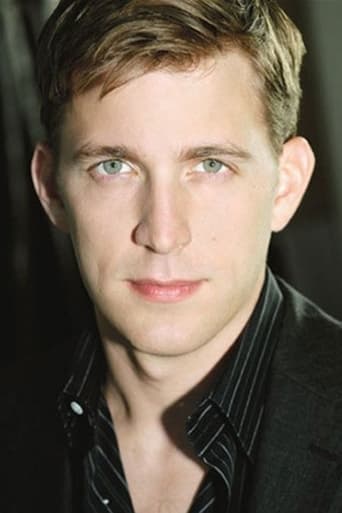Kattiera Nana
I think this is a new genre that they're all sort of working their way through it and haven't got all the kinks worked out yet but it's a genre that works for me.
Solemplex
To me, this movie is perfection.
CrawlerChunky
In truth, there is barely enough story here to make a film.
Zlatica
One of the worst ways to make a cult movie is to set out to make a cult movie.
robert-temple-1
Quentin Crispe was one of the most important people of the second half of the twentieth century. If he had heard me say that, he would have laughed as uproariously as it was possible for him to do, by which I mean give a severe chuckle. What do I mean by saying it? I mean that he was an individual to the furthest and truest extent, in a world made dull by a stifling mass conformity. In addition, he was brilliantly witty and extraordinarily intelligent and wise. He always claimed to be a homosexual, but my wife and I always suspected that he may have died a virgin, as he was sublimely asexual in person and the idea that he might ever have been physical with anyone seemed frankly inconceivable. Quentin was above all a narcissist, and proud of it. He was driven into narcissism by the sameness of the human environment, and I believe that if he had been an animal (assuming that he had been allowed to be also articulate), he would have been much happier, because animals do not all look alike, whereas humans deceive one another by all having two arms, two legs, faces, etc., so that they have the illusion that they all somehow have something to do with one another, which they do not. We were fortunate to know Quentin in both his London and New York environments, though we saw him rarely. People who missed his amazing one-man show in a large London theatre years ago can never know what they missed, because it was one of the most scintillating live performances possible to see anywhere at any time. It was all on the theme of 'personal style', a subject which was a favourite for me to discuss with him. (He was somewhat jealous that I had known Tallulah, the one person in the world he most wished he had met, and we often recurred to the subject of Tallulah as the Queen of Style). John Hurt has done a wonderful service to posterity in capturing Quentin on film almost to perfection. He has mastered every detail of his mannerisms, his movements, his walk, the turn of his head, his gestures, his manner of speaking, and his facial expressions. (The only thing missing is the purple tint which Quentin added to his hair.) It was so eerie seeing John sitting there in that lower Manhattan diner. I could just see Quentin eating his melted cheese on toast (he loved boring 'school food'). This is one of the greatest acting achievements of our time, in terms of portraying a real life character. My wife and I hosted a dinner party many years ago for both John and Quentin, who did not see that much of each other, and it was so intriguing listening to them bantering back and forth, which they did somewhat shyly. The photos of them were marvellous, with them reflecting each other's glow and their arms around one another. John Hurt has never had as many opportunities to be the lead actor in films as he should have had. That is because, except in SINFUL DAVEY in his youth perhaps, he was never a natural 'romantic lead'. The inevitable nature of popular story lines generally condemns many actors and actresses to supporting roles, no matter how brilliant they are. And so it is that John has made something like 150 films because everybody wants him, but has never been Brad Pitt (for which I am sure he is eternally grateful), though to judge from his attraction to women, you would imagine that John might secretly have been Brad Pitt after all in ways best left to the imagination. Drollery has always been a specialty of John's, and that is remarkably attractive as a trait. And so we come to the film. Trying to write a script like that is no easy task, and the writer has done a good job without being particularly brilliant. The lighting was not that good at times, and the direction was good without being brilliant either. The trouble with falling short in the production itself is that a subject like Quentin demands the best. However, we must be grateful for what we got. The film features a spectacularly good performance by Jonathan Tucker, who was so brilliant in THE DEEP END (2001; see my review). He plays the young gay artist Patrick Angus, whom Quentin befriended, with great sensitivity and intensity. Denis O'Hare is admirable as Quentin's friend Phillip Steele. Rather too much is made in the film of Quentin's unfortunate flip remark about AIDS being a fad, which landed him in a lot of trouble. There is no doubt that Quentin was the victim of hysteria and was excessively criticised for a mere passing witticism (or what was intended as such, however stupid it may have been). But one very touching scene of a huge butch gay man attacking Quentin for it in the street and then sobbing uncontrollably about his dying boyfriend really brings home to us the mass grief associated with this terrible disease, and how wrong a stray remark can be when it wounds those who are suffering deeply. After all, who of us has not lost a friend to AIDS? One reason why this film is not as exciting a film as one would have wished is that Quentin was a quiet and subdued person. Despite his carefully designed gauche appearance, Quentin was remarkably demure. Perhaps we are all a bit too jaded and expect too many thrills in movies. One thrill which I wish everyone had had the opportunity to enjoy was to know Quentin Crispe. This film goes some way towards filling that gap, and we must be grateful to it, and to John Hurt for his magnificent efforts to bring Quentin to life as vividly as if he were really there in front of the camera.
Richard Buller
It is not necessary to have seen John Hurt's previous portrayal of Quentin Crisp in "The Naked Civil Servant" to appreciate this new film, but it is interesting to consider the subtle but different tones of each. The first was a cotton-candy confection that delighted on its own terms in spite of being based upon Quentin's much more somber autobiography. The current film is also sweet, but it incorporates some of the more serious issues of Quentin's later life, namely his seemingly indifferent, cavalier response to AIDS and how he dealt with growing old. Quentin was misunderstood in life because people, gay and straight, viewed him as a harlequin; but, anyone who has had the pleasure of reading his books, which this film curiously barely mentions, knows that he was a sober, ferocious intellect who, while flamboyant in approach and appearance, was a product of his time and came to us as a famous person, late in life, inevitably possessing, in the 1970's, '80's, and '90's, at least some of the Edwardian notions that informed his youth in the 1920's and '30's. This film achieves the formidable task of presenting Quentin both as he appeared publicly and as he thought privately. One can only imagine how difficult it must have been to construct the script. It was inspired to have utilized the framework of Quentin's relationships with various people upon which to construct the biography. By showcasing Quentin's friendships with a literary figure (his friend from "Christopher Street" magazine), an AIDS figure (the young, anguished painter), and a performing artist, the film reflects important facets of his personality and helps to illuminate the sometimes perplexing concept of the world according to Crisp or what he in life famously termed "Crisperanto." Quentin's dialog in the film may sound epigrammatic to some; but, that is how the gentleman actually spoke, and he had a great deal to say.These considerations are perilously academic, however. What is important is that the film is, in and of itself, magnificent. One is tempted to observe that John Hurt does Quentin better than did Quentin himself. It is difficult to take one's eyes off of this intricately prepared, compelling actor. How astonishing are those scenes that show Hurt as Quentin: playing Queen Elizabeth I in a film, waxing ruefully upon the ravages of aging; as he really was, in his tiny apartment, hair down, balding, elderly, alone; tilting his head back, upon theater stages, in cafés, or while simply walking down the street, to achieve that rollicking laugh that so soothed and beguiled. Because portraying Quentin is by definition flashy, Hurt at first may appear mannered and theatrical; but, if one watches closely, he will realize that the actor knows precisely when less is more. His performance is, in fact, careful. It is vigorous but not exaggerated, and the effect is remarkable.Those who approach "An Englishman in New York" armed with old political animosities from the Act Up era are missing out, really, because, as troubling as Quentin seemed in his attitude towards AIDS, he did try to atone for it, in his own way (even people with huge and gracious hearts can sometimes find it impossible to say "I'm sorry"), and because he blazed so uniquely and with such genius in innumerable other areas. As a social commentator, essayist, novelist, film critic, philosopher, public speaker, and most unlikely of fashion plates, Quentin Crisp had no peer. For better or worse, he remains a gay -- and literary -- icon. This film does justice to this totally unique man both as a legend and as he was at heart, a caring, emotional creature whose ultimate love and humility will likely outlive the hats, scarves, and tinted hair that memorably punctuated his public persona.
Percy Dubois
This movie is worth seeing when it comes out on television. Everything about the film works, and I do mean everything! Brian Fillis certainly did his homework and scripted a show that holds one's interest, and will intrigue anyone who is unfamiliar with Quentin Crisp. Granted any made-for-television movie has limits of what can be written and shared, often dictated by time slots and network requirements, but this movie has surface and detail and informs. Brilliantly written and acted! John Hurt's performance is absolutely phenomenal and as otherworldly as Quentin Crisp was. Denis O'Hare's acting ability is fully on display throughout the film, providing a touching portrayal of someone who loved and cared for Quentin Crisp. Jonathan Tucker is a star and is spectacular in his role. Swoosie Kurtz and Cynthia Nixon provide colorful portrayals of two women in Quentin Crisp's New York life. Could not ask for a better cast. Definitely, see the film when it appears on television!
borrelli
Saw this film at the Tribeca Film Festival in NYC and was deeply impressed. A loving, yet honest, look at Quentin Crisp in his later years in New York. John Hurt just IS Quentin Crisp in this role. It's amazing how accustomed we can be to bad acting as a norm until you see a performance like this and are suddenly reminded of how it's really done. Supporting cast is equally effective (how can they not be when you've got Cynthia Nixon and Swoosie Kurtz) with a massive standout being Denis O'Hare. Beautiful understated effective performance. More than simply biographical, it offers many social subjects for consideration in context - queer-on-queer prejudice, appropriate responses to AIDS in the 1980's, and much much more. It's a really good film, and well worth seeking out for just the acting alone. John Hurt is just perfect.

